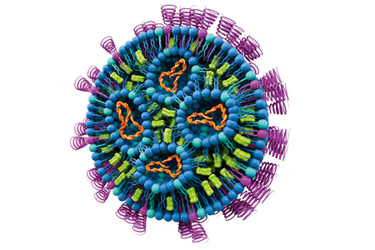Rewriting The Health Code: How mRNA Technology Is Shaping The Future Of Medicine
By Stefan Randl and Maaike Everts, Evonik Health Care

The Covid-19 pandemic has ushered in a new era in medicine – that of mRNA technology. But the potential of mRNA for preventing and treating a whole range of diseases reaches further to infectious diseases, cancer immunotherapy, therapeutics for protein replacement and gene therapy. In this article, we examine how mRNA technologies open the doors to a whole range of new gene therapies and the role of lipid nanoparticles (LNPs) in current and future developments.
There are currently numerous clinical trials taking place for mRNA therapeutics, and these show great potential for tackling diseases. One application is in cancer immunotherapy, where mRNA vaccines can be used to encode tumor-associated antigens that are expressed in cancer cells, thus educating the immune system to eliminate these tumor cells. Another application is to develop therapeutic approaches for autoimmune diseases like multiple sclerosis (MS), where the technology teaches the immune system to tolerate the natural proteins attacking the immune system.
To make full use of these technologies, we need to ensure the mRNA can be effectively and safely delivered into the cell. Lipid nanoparticles are crucial to the successful delivery of mRNA vaccines and other RNA and nucleic acid therapeutics.
Get unlimited access to:
Enter your credentials below to log in. Not yet a member of Pharmaceutical Online? Subscribe today.
